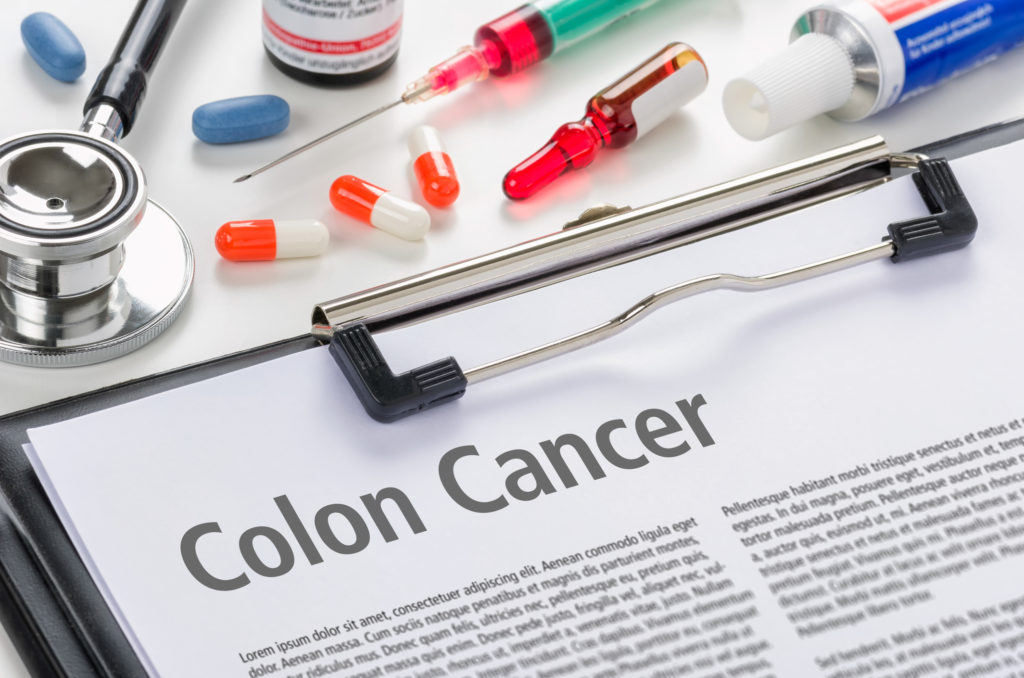Colorectal
Colorectal cancer, also known as colon cancer, is a cancer of the large intestine or the rectum. The large intestine is the last section of the digestive tract and consists of the colon and rectum. The colon is four to six feet long, and the last seven to nine inches of it is called the rectum. Colon cancers develop from adenomatous polyps (also called “adenomas”) that grow larger and eventually transform into cancer.

This disease is not only highly beatable and treatable, but also highly preventable. Regular screening and removal of polyps can reduce colorectal cancer risk by up to 90%. Unfortunately, fear, denial and embarrassment keep many people from being screened.
| RISK FACTORS | personal history, hereditary, age, race, diet, lifestyle |
| SYMPTOMS | changes in bowel habits (diarrhea, constipation or narrow stools for more than a few days), urgency for a bowel movement or feeling like you need to move your bowels even if you just did, blood in the stool, stomach pain, weakness and/or fatigue |
| SCREENINGS | recommended for at-risk men and women over age 50 ANNUALLY
EVERY FIVE YEARS
EVERY 10 YEARS
|
| STAGES | Stage 0 – innermost lining of colon or rectum
Stage I – hasn’t spread beyond wall Stage II – spread into muscle layer of colon or rectum Stage III – spread to one or more lymph nodes Stage IV – spread to other body parts
|
| TREATMENT OPTIONS | surgery, chemotherapy, radiation |
